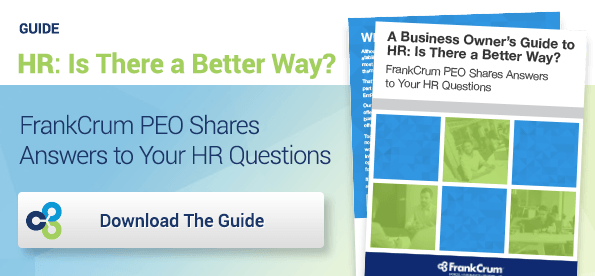If a business owner only manages a handful of employees, they might be tempted to avoid paying for up workers' compensation insurance. However, acquiring workers' compensation is still an important thing to consider. In some states like California and Florida, even businesses with a single employee are required to have workers' compensation insurance. And whether coverage is mandated by law or not, workers' comp is important because it serves as the main remedy for injuries or incidents that occur in a workplace.
Workplace accidents are a serious matter, and the consequences can be costly. Even if a business is small, it can still be held liable for an injured employee's medical bills and lost wages. Workers' comp provides an important element of financial security to safeguard companies from this risk.
Here are a few key items related to workers' comp insurance that small business owners should know.
Workers' Compensation coverage is required in all states, except for Texas. Texas is the only state that doesn't require private employers to purchase workers' comp coverage. However, it is mandatory for public employers.
Private Texas employers may have the freedom to choose, but workers' comp coverage is mandated in most states for a reason: insurance protects you, your business, and your employees.
The private Texan employers that choose to opt-out of workers' compensation insurance may save on upfront costs, but they're legally vulnerable. For example, an uninsured employer cannot defend itself against an employee-filed lawsuit on the basis of negligence. The business can't make the case that an injury or illness was caused by the employee's own carelessness.
Back in 2013, Oklahoma passed legislation that allowed employers to opt-out of workers' compensation insurance. There was one caveat: The employer was required to provide additional benefits to injured workers. In 2016, the Supreme Court ruled this law unconstitutional. Since that ruling, Texas has remained the only state that allows employers to opt-out of workers' compensation insurance.
What If I Only Employ One Worker?
In most states, workers' comp insurance is required even if the organization only employs one worker. Other state laws require coverage if you employ a specific number of workers. Laws vary greatly by state, so it's important to check with your state's workers' comp and liability laws.
Cover the Job, Not the Employee
It's also important that every employee, including the owner at a business, is covered for the particular job they do. If an employee performs two different tasks at work, then that employee should be covered for each specific task, or class code, along with the proportion of time that they spend at each task. For example, if a construction worker specializes in roofing and framing, they should be covered for each class code – roofing and framing. It's also important that employers get the class codes right.
Class codes are made up of three or four numbers, assigned to differentiate between various job duties performed by employees. Assigning the correct class code is important because they influence your workers' compensation insurance costs.
Maintain a Safe Workplace
 Business owners should be aware that good and bad safety performance affects workers' comp insurance premiums. The state government regulates rates for workers' comp, and they can be raised or lowered. The rates depend on the overall safety performance of a business over a three-year period. If a business does poorly, rates can go up, but if a business does well, they may earn discounts.
Business owners should be aware that good and bad safety performance affects workers' comp insurance premiums. The state government regulates rates for workers' comp, and they can be raised or lowered. The rates depend on the overall safety performance of a business over a three-year period. If a business does poorly, rates can go up, but if a business does well, they may earn discounts.
So, if work-related injuries are avoided, safety rules and regulations are enforced, and employees are encouraged to receive safety training, then businesses are more likely to reduce their workers' comp premiums.
Take a look at some easy ways to mitigate risk, maintain a safe workplace, and keep your rates low:
- Inspect the Workplace for Hazards. Aim to conduct regular safety inspections in your workplace to ensure the environment is free from avoidable hazards. This may include cords that could cause a tripping danger or improper wiring that could cause electrocution. Get in the habit of routinely checking your workplace.
- Educate Your Employees. Ensure your workers know how to follow safety protocols and what it takes to maintain a safe work environment. Encourage employees to partake in good worksite housekeeping by cleaning up debris and wearing gloves to protect their hands.
Following good housekeeping rules can prevent hidden hazards. You may also consider starting an incentive program for your employees to learn and follow safety protocols.
- Act Quickly. In the event a workplace injury does occur, it's important to move fast and efficiently. First, seek medical attention for your injured worker. Then, report your claim to your professional employer organization (PEO) or your workers' compensation insurance carrier. Acting fast can greatly impact the cost of your claim.
Be aware that Professional Employer Organizations (PEOs) offer workers' compensation as part of their overall PEO package, and there are a number of unique benefits. With FrankCrum, for example, there is no down payment or the need for an annual workers' comp audit. You simply pay as you go in sync with your payroll cycle, often at lower premium rates than you can get on the open insurance market.
FrankCrum's PEO solution includes affordable workers' comp coverage as a core feature, delivered by our very own insurance company: Frank Winston Crum Insurance. FrankCrum also offers resources and assistance to mitigate the risks that can result in accidents in the first place.












